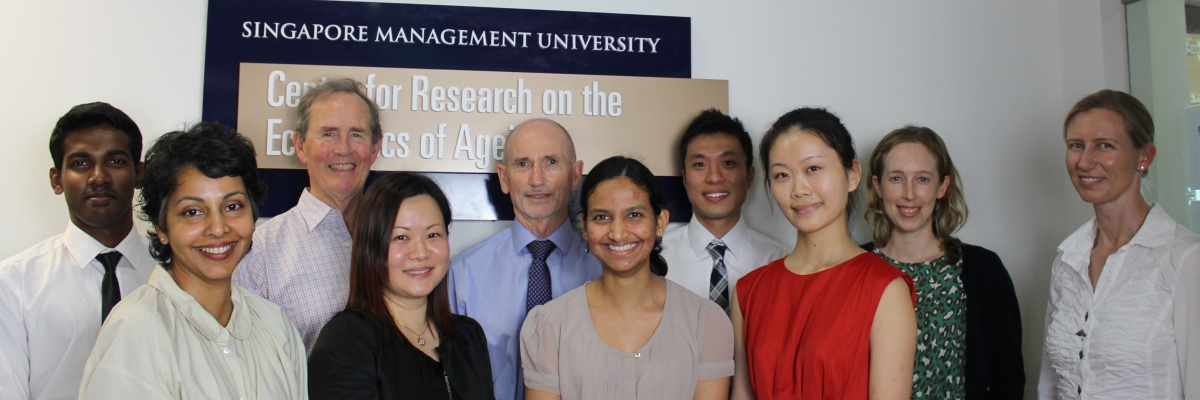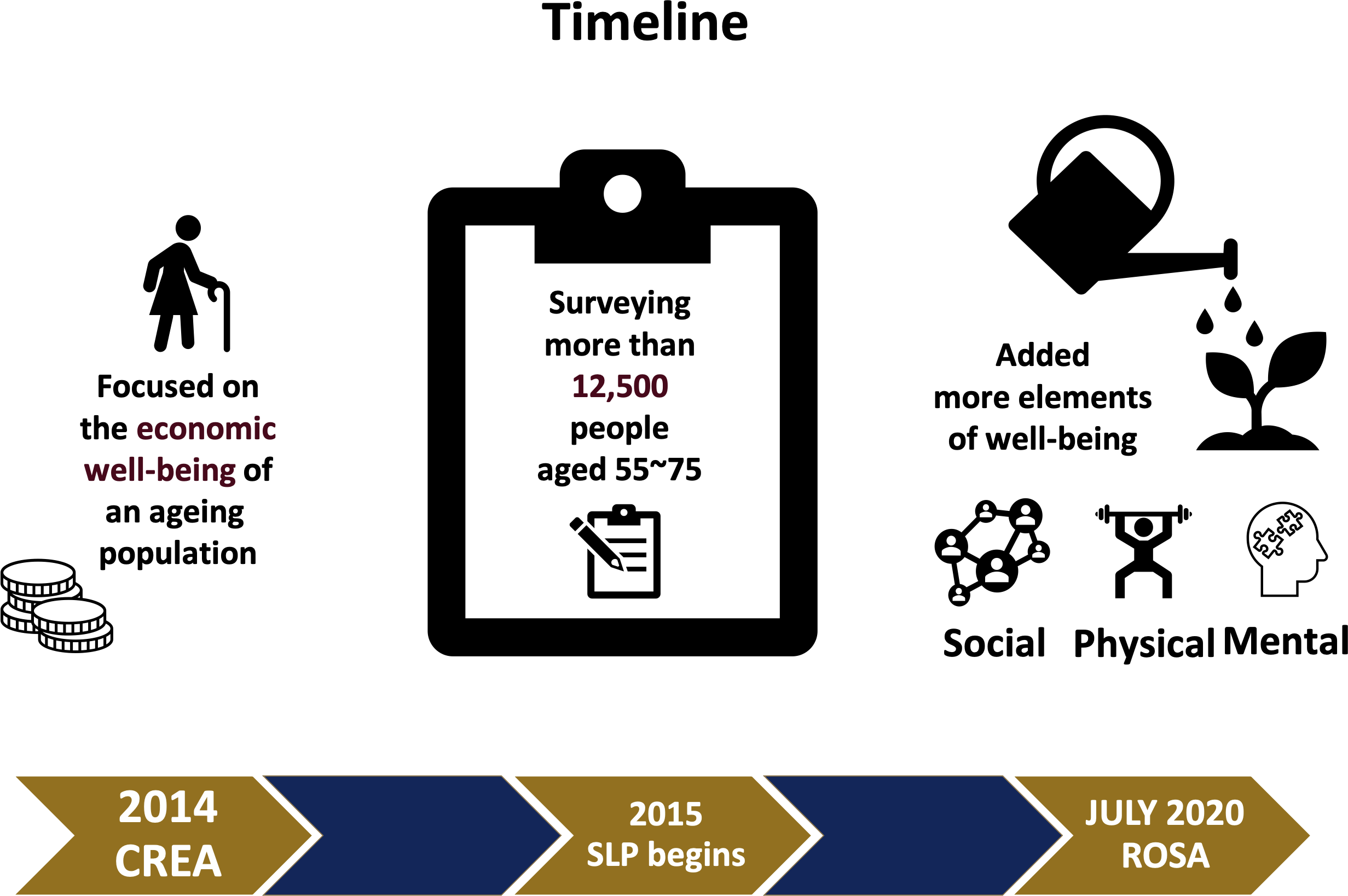

Background to CREA
The Centre for Research on Successful Ageing (ROSA) was previously known as the Centre for Research on the Economics of Ageing (CREA). CREA was established in 2014 at Singapore Management University (SMU) with the support of a Ministry of Education (MOE) Academic Research Fund Tier 3 Grant, and embarked to carry out a long-term programme of economic research on Singapore’s ageing population. With an impressive team under the leadership of Professor Bryce Hool, Director of CREA, the centre launched the Singapore Life Panel® (SLP), the world’s largest high-frequency longitudinal panel survey on ageing. Over five years, the CREA team conducted 60 waves of SLP surveys and used the collected data to conduct cutting-edge research. The Centre was also actively engaged with local stakeholders and policymakers, ensuring that CREA made a tangible difference in the lives of Singaporean older adults.
How SLP Began
The SLP was first launched by CREA in 2015 with the aim of conducting a long-term longitudinal study of Singapore’s ageing trends. With over 12,500 Singaporeans aged 50 to 70 years, the SLP survey is one of the largest population-representative high-frequency panel surveys run in the world. The SLP cohort regularly completes an average of 8,000 surveys with 100 questions each month and has captured more than 700 unique variables in its five-year history. The data collected from the SLP provides rich and meaningful insights into the lives of Singaporeans as they transition through to the next phase of life. Regularly updated to include contemporary and topical research modules, the SLP also provides data on the demography, work, income, health, government policies, expectations, housing, consumption, wealth, shocks, well-being, and personal insights from its members.
CREA's Focus
Primarily focusing on the economic well-being of an ageing population, CREA examined the financial challenges faced by Singaporeans as they enter their retirement years and their preparedness for it. Key areas of interest at CREA include health and its relation to spending and employment, housing as a wealth asset in retirement, the impact of government schemes (particularly those aimed towards the older population), and retirement decision-making. With a vivid portrayal of the lived realities of ageing Singaporeans, analysis of the relationships between variables influencing financial adequacy, and evaluations of policy measures targeted towards the enhancement of the well-being of older Singaporeans, CREA has worked closely with the government and private sectors to translate these research findings into implementations that better the lives of older Singaporeans.
From CREA to ROSA
Through the hard work of the CREA team, the centre was able to secure a second MOE Academic Research Fund Tier 3 Grant that would enable it to continue running for at least another five years. Notably, the team also took this opportunity to expand the focus of the study to include non-economic aspects of the well-being of older adults in Singapore. In this light, the expertise developed on the economics of ageing will be combined with elements of physical, mental, and social well-being to construct a more holistic picture of successful ageing in Singapore.
Thus, on 1 July 2020, CREA was renamed the Centre for Research on Successful Ageing (ROSA) to reflect the new direction for the centre. The team was also revitalised with fresh leadership from Professor Paulin Straughan, the new Director and Principal Investigator at ROSA. New members were also added to the team from the fields of economics, sociology, and psychology at SMU, the Centre for Ageing Research and Education at Duke-NUS, the Institute of Policy Studies at the National University of Singapore, the RAND Center for the Study of Ageing, and the Technical University of Dresden. Many members of CREA will also be continuing on with ROSA and will be working with the new team to bring the centre to new heights.
ROSA would not have been possible without the hard work and dedication of the team at CREA that laid the foundations for the SLP, and the team at ROSA would like to express their gratitude and appreciation for this.